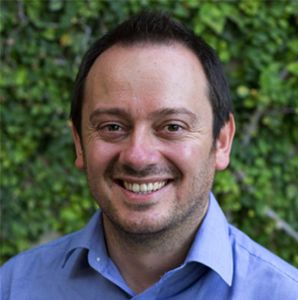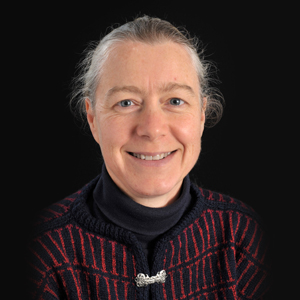
Civil Society, Development and Democracy Writing Retreat
This writing retreat is for ESRC funded and non-ESRC funded students within the White Rose Universities whose research aligns to the Civil Society, Development and Democracy Pathway.
The aim of this retreat is to use dedicated writing time to progress our writing projects. All CDD PhD students are welcome to participate and we encourage anyone who is interested to register their interest. However, the retreat is limited to 18 people so final-year students or those with more urgent projects to finish will take precedence in the event that we are over-subscribed.
This is a supportive, non-surveillance environment. We use most of the time for writing, all of us in the same room. Brief scheduled discussions between writing slots often generate solutions to writing problems, develop drafts, lead to research-oriented conversations and provide feedback on writing-in-progress. We focus on progressing a range of writing projects and produce a range of written outputs: PhD chapters, books, conference abstracts, journal articles and research proposals. Significant outcomes include growing research- oriented conversations and relationships, building confidence in writing, improving the quality of publications and creating cross-disciplinary research conversations.
- Focus exclusively on writing.
- Agree not to use internet/email/social media in the writing room.
- Define specific goals and sub-goals, i.e. sections of paper/chapter, no. of words.
- Define and discuss content and structure for writing sub-goals.
- Take stock of your achievements of these goals throughout the programme.
- Discuss your writing-in-progress –> mutual peer support.
- Adhere punctually to the timetable
- For writing: Laptop, power cable, memory stick, printer, notes, outlines, ‘model’ paper, data, instructions for authors [NB Limited printing may be available 20p/sheet or bring your own printer & paper if you need to print]
- For active breaks: running/walking/tennis/table-tennis gear/shoes/ wellington boots or walking shoes, waterproofs/umbrella.
- Read Murray and Newton (2009) article – reference below.
- Decide on your writing project and prepare for it.
- Review retreat programme and plan writing tasks for timeslots in each day.
- Get notes, plans, outlines etc. together. Outline the structure of your paper/chapter.
- Download what you need, rather than use wifi [may be intermittent].
- Mobile signal at venue is variable according to servers used.
- Provide any dietary/other requirements before your visit, including room preferences as some rooms are shared.
- Please bring some cash: the WRDPT covers accommodation and meals, but does not cover your travel or alcoholic drinks in the evening. Train fares should be paid for by your RTSG, or, for non-ESRC students, departmental funding. You will also require a small amount of money (approximately £5-7 each way) for the taxi between the train station and Chapelgarth. We can arrange receipts for this so that you can claim back from your RSTG.
Retreat Facilitators

Matthew is active within the Sheffield Political Economy Research Institute (SPERI) where he is a Fellow and co-leader of its research programme on Development and the Governance of a Globalising Political Economy, and regularly writes commentaries for its influential blog. He is also a Fellow of the Sheffield Institute for International Development (SIID). His primary area of research interest is the political economy of development, with a particular focus on small states in general, and the Caribbean specifically. He has four main research strands active at present: comprehending the ‘existential threats’ facing development in the Caribbean region; the rise of China and the attendant impact of hegemonic transitions on global governance in general, and multilateral trade in particular; rethinking development conceptually and empirically beyond the so-called ‘rise of the BRICS’ (the subject of a SPERI paper published in mid-2016); and the turning tide of drug policy in the Americas, reflected in sudden and remarkable patterns of cannabis decriminalisation and legalisation throughout the region.

PLEASE NOTE: The nearest train station to Chapelgarth Estate is Northallerton. Chapelgarth contact: Marcella Sutcliffe, 07973159529. Please fully complete the booking form to inform Chapelgarth of any dietary or access requirements.
Additional reading material
- Murray R (2015) Writing in Social Spaces: A Social Processes Approach to Academic Writing. London: Routledge.
- Murray, R (2012) It’s not a hobby: Reconceptualizing the place of writing in academic work, Higher Education. DOI: 10.1007/s10734-012-9591-7.
- MacLeod I, Steckley L & Murray R (2011) Time is not enough: Promoting strategic engagement with writing for publication, Studies in Higher Education, 37(5): 641-54.
- Moore S, Murphy M & Murray R (2010) Increasing academic output and supporting equality of career opportunity in universities: Can writers’ retreats play a role?, Journal of Faculty Development, 24(3): 21-30.
- Murray R (2011) Developing a community of research practice, British Educational Research Journal, 38(5): 783-800.
- Murray R & Newton M (2009) Writing retreat as structured intervention: Margin or mainstream?, Higher Education Research and Development, 28(5): 527-39.
- Murray R (2013) Writing for Academic Journals, 3 rd ed. Maidenhead: OU Press-McGraw-Hill.
Hourly Schedule
Tuesday 10th December
- 2.00pm - 2.30pm
- Introductions, writing warm up, setting goals
- 2.30pm - 4.00pm
- Writing
- 4.00pm - 5.00pm
- Break & room allocation
- 5.00pm - 6.00pm
- Writing
- 6.00pm - 7.00pm
- Input Session
- Overcoming common writing problems
- 7.30pm -
- Dinner
- 9.00pm - 9.30pm
- Input session
- How do we write?
Wednesday 11th December
- 8.30am - 9.15am
- Breakfast
- 9.15am - 9.30am
- Planning
- 9.30am - 11.00am
- Writing
- 11.00am - 11.30
- Break
- 11.30am - 12.30pm
- Writing
- 12.30pm - 1.15pm
- Activity
- Walk, run, tennis - you choose
- 1.15pm - 2.00pm
- Lunch
- 2.00pm - 3.30pm
- Writing
- 3.30pm - 4.30pm
- Break
- Tacking stock, outputs, feedback, next moves








